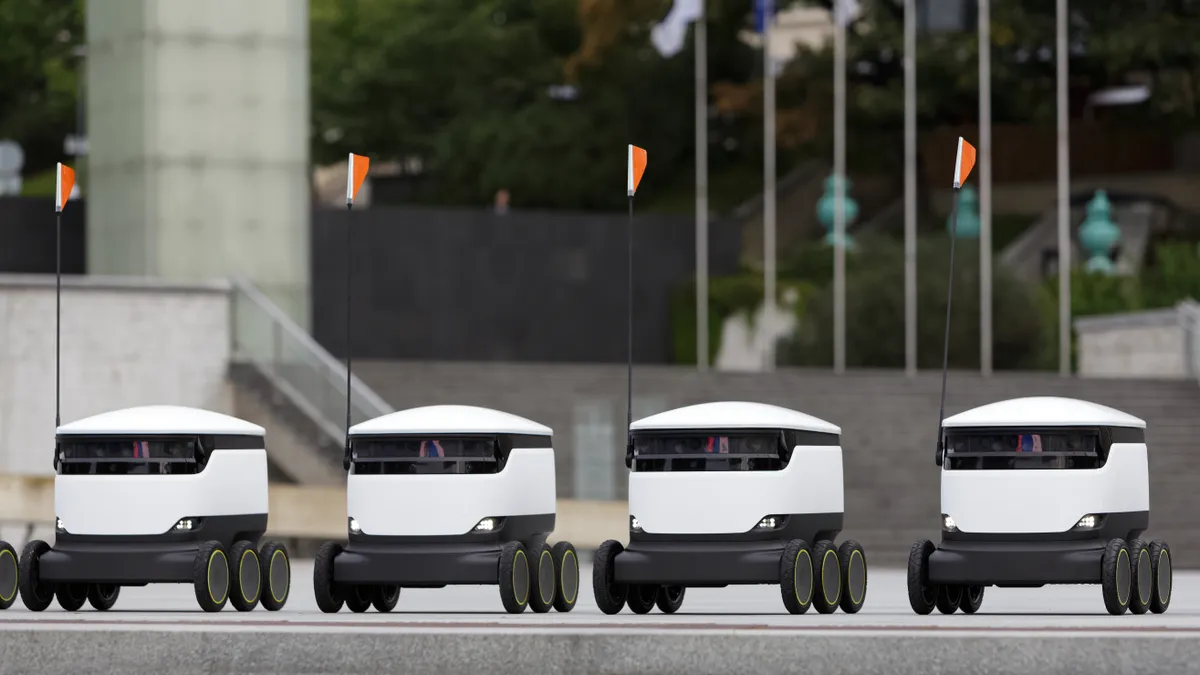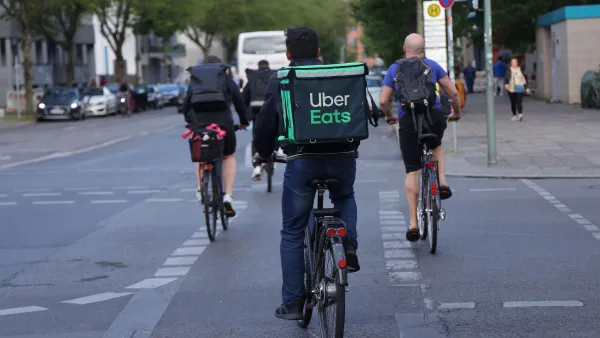Dive Brief:
- Food delivery robotics company Starship Technologies plans to expand its services to 100 U.S. college campuses over the next two years, the startup announced Tuesday.
- Starship robots currently operate at George Mason University, Northern Arizona University and as of Tuesday, University of Pittsburgh. The service will also roll out to Purdue University, Indiana on Sept. 9.
- Starship secured $40 million in its latest funding round, bringing its total funds up to $85 million, according to the release.
Dive Insight:
With food delivery via robot still in its nascent stages, Starship seems to be effectively carving a space for itself in the college student market, where consumers are digital natives, tend to prioritize convenience and typically don't have access to full kitchens. And at George Mason, its partnership means that students can use meal plans to pay for snacks to be delivered by one of the 25-robot fleet.
By targeting campuses, the startup sidesteps the greater resistance to and regulation of food delivery robots that exists in several major metropolitan areas, as private university grounds involve less regulation than public city sidewalks, and tend to be well maintained. San Francisco, for example, imposed a strict permit-only policy, where so far only Postmates is licensed to test food delivery robots. Even with a permit, each Postmates robot requires a human courier within 30 feet, and the company can only operate three at any one time.
Starship robots at George Mason are equipped with locks, GPS systems and cameras, and competitor Kiwi, which currently operates its bots at UC Berkeley, enabled theirs with tracking devices and a human monitoring their routes.
The AI technology is still in its pilot stages, as engineers consider how the technology can be scaled and made safe to pedestrians, while critics remain skeptical of robots' feasibility in busy urban areas. San Francisco Supervisor Norman Yee argued in 2017 when the city implemented their ban, "the business model is basically get as many robots out there to do deliveries and somebody in some office will monitor all these robots. So at that point you're inviting potential collisions with people."
But, others say the robots offer social benefits for the elderly, people with disabilities and low-income individuals living in food deserts. And recent data from Starship's pilot at George Mason University saw another positive outcome: an extra 1,500 breakfast orders had been delivered in the two months since the fleet was introduced, indicating that the robots could help address the number of U.S. college students who skip breakfast due to not having the time.
Starship Technologies CEO Lex Bayer said in the announcement yesterday that the latest investment helps the company toward its goal of reaching over 1 million students, which aligns with estimations from MarketsandMarkets that the robot delivery market will triple in size by 2024.














